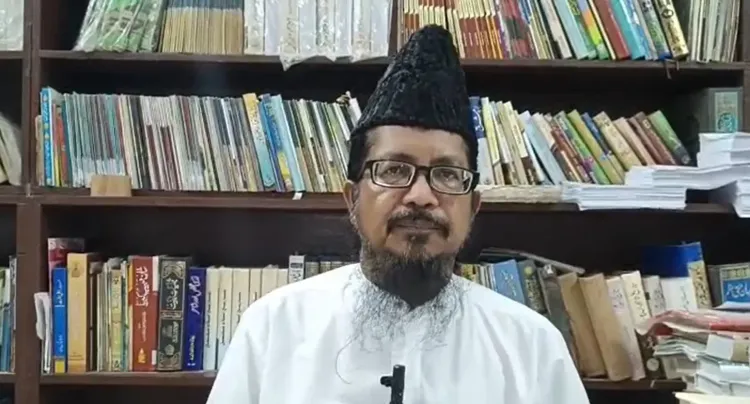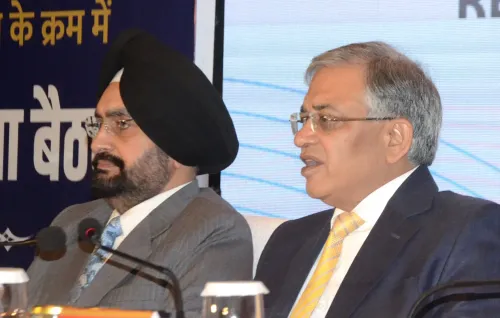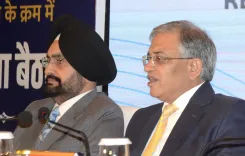Should ST Hasan Rethink His Remarks? Maulanas Criticize SP Leader Over Yoga-Namaz Comments

Synopsis
Key Takeaways
- Yoga and Namaz serve different purposes.
- Political remarks on religion require caution.
- Health practices should be separated from religious duties.
- Consulting knowledgeable voices is essential.
- Yoga promotes overall well-being.
Bareilly, June 19 (NationPress) Esteemed Islamic scholars have vehemently condemned Samajwadi Party (SP) leader ST Hasan for his recent comments that associate the observance of Yoga Day with religious rituals, specifically Namaz.
Religious figures have labeled his remarks as misleading, advising him to refrain from making statements that blur the lines between religious beliefs and health practices.
Both All India Muslim Jamaat (AIMJ) National President Maulana Shahabuddin Razvi Barelvi and All India Shia Personal Law Board General Secretary Maulana Yasoob Abbas urged Hasan to seek counsel from knowledgeable and responsible individuals before addressing topics related to Islam.
The controversy ignited when ST Hasan remarked, "There is no need to pause for Yoga Day. If employees wish, they can practice Yoga at home and then report to work. When Muslims are not even afforded a half-hour break for Namaz, how can it be justified to provide a special break for Yoga?"
In a strong rebuttal, Maulana Shahabuddin Razvi stated to IANS, "Yoga is fundamentally a Sanskrit term, yet it has permeated many languages, including Urdu. Yoga is not a religious practice—it’s a form of physical and mental discipline. It is vital for both genders and aids in preventing various illnesses while enhancing overall health. That’s why I recommend everyone—students in madrasas, scholars, imams, and religious leaders—to incorporate Yoga into their daily routine."
He further clarified that while Surya Namaskar holds particular religious significance in Hinduism, its practice is optional.
"I do not personally advocate Surya Namaskar, but I have no objections if someone chooses to practice it according to their beliefs. The issue transcends religion—it revolves around health. Whether at the state or central level, governance should be based on democratic principles, not religious affiliations," he told IANS.
Maulana Razvi emphasized that Islamic teachings have historically embraced forms of meditation and physical discipline that align with Yoga.
"In our Sufi traditions, dargahs and spiritual leaders have imparted practices that resonate with yogic principles. The aim is inner purification and physical wellness. Hence, Yoga should not be conflated with Namaz. They serve distinct purposes: Yoga is for physical and mental health, while Namaz is a religious duty for all mature Muslims."
Echoing similar concerns, Maulana Yasoob Abbas expressed his disappointment regarding Hasan’s statements.
"It is unfortunate that ST Hasan is merging Namaz and Yoga. Namaz is a form of worship—an essential act of faith. Yoga, in contrast, pertains to health and wellness. It lacks a religious mandate. Regrettably, such comments tarnish both Islam and Namaz," Abbas stated.
He pointed out that Yoga has evolved into a global phenomenon, promoted by India and its leadership.
"Yoga is now celebrated worldwide, largely due to India's initiatives, particularly under the guidance of Prime Minister Narendra Modi. To intertwine religion with a globally recognized health practice is counterproductive," Abbas added.
Abbas concluded by urging politicians to exercise greater responsibility when discussing sensitive religious issues.
"ST Hasan should reflect before making such comments. He ought to consult religious scholars and informed voices before addressing matters concerning Islam. Speaking without adequate knowledge only fosters confusion and undermines the very faith he professes to uphold," he concluded.









